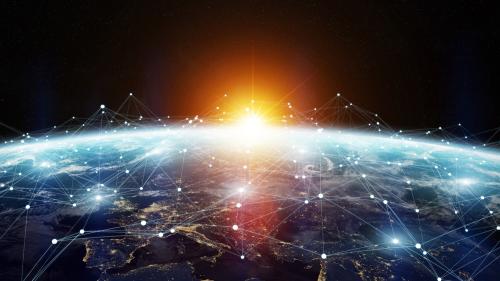The next three years will be a fateful period for the post-Soviet political transition in Russia, as parliamentary and presidential elections will present both risks and opportunities. To understand these risks and opportunities it helps to realize that Russia’s political system has been turning into what political scientists call a “super-presidential” form of leadership.
In a super-presidential regime “the president and his administration (the ‘apparat’) control political decision-making while the parliament and courts are only nominally independent”, as aptly stated in the recently published UNDP Central Asia Human Development Report. In other words, while the trappings of democratic government remain in place, with parliament, courts, and press, with a civil society and with elections, they do not in fact counterbalance the authority of the president, do not make his power open to a real contest, and do not enforce accountability. In Central Asia, since independence super-presidential systems have been the rule, rather than the exception.
While super-presidential systems promise political stability, efficient government and high economic growth, three problematic aspects of this form of political leadership stand out:
First, leadership selection in the super-presidential system tends not to be competitive, transparent, nor merit or performance based, and hence lacks key elements of legitimacy.
Second, the political dynamics of super-presidential leadership can easily result in a vicious cycle of control. To gain and maintain his power, the super-president needs to exert strong and centralizing controls over the main interest groups in the country. This in turn requires a combination of negative constraints through the security apparatus and of positive incentives through economic pay-offs to the “family”. The latter may at times involve the real family, at other times the inner circle of supporters, or in yet other cases competing clans on which the president bases his continuing power. To be able to make those pay-offs the leader must in turn control key “profit” centers of the economy, whether oil, gas, gold or its main business sectors, through legal or corrupt means. This generates opposition from those who lose business opportunity and wealth as a result, and therefore more political control needs to be exerted, requiring yet more economic control. Since half-hearted efforts at control leave the superpresidential system vulnerable to “revolts”—witness the “color revolutions” of 2004/2005 in Georgia, Ukraine and Kyrgyzstan—the incentive for the super-president to move towards total political and far-reaching economic controls is great. While creating a sense of stability and efficient government in the short term, these controls in the longer term stifle economic growth and build large reservoirs of pent-up public frustration, risking ultimately not only economic collapse but also serious political unrest. Examples include Indonesia, Yugoslavia and of course the Soviet Union.
And third, there is the exit problem which super-presidents face. Few autocrats find it easy to step back from power and to manage the process of succession effectively. The lure of power and the fear of being hounded by his successor present the super-president with an almost irresistible incentive to stay in office until death, violent deposition or in the best of cases perhaps the handing-over to a trusted member of the “family.”
This raises two questions for Russia today: First, is the current presidency a “superpresidency”? There is little doubt that it is, or is at least well on its way to become one. In Russia, key elements of a super-presidency seem to be falling into place: The role of the Duma as an independent legislative has been declining with the demise of an effective opposition. The courts have never been strong and are subject to influence by the executive branch. The regional governors have lost their electoral mandate and hence a significant degree of independence, as they are now appointed by the President. The independent voice of television and of much of the press has been suppressed. Civil society is weak and under pressure by the authorities. Legal prohibitions against peaceful public demonstrations have been introduced. And even respected members of the intellectual elite—with some notable exceptions—have become increasingly unwilling to speak their minds in public about real or perceived weaknesses of the government.
The second question is: Has Russia reached the point of no return in the vicious cycle of control described above? The next three years will be critical in providing the answer to this question. The key determining factors will be whether President Putin can exit gracefully from power; how transparent, merit-based and legitimate will be the selection and election of his successor; and whether the next president can reverse the dynamics of super-presidential leadership by loosening political and economic controls, by permitting the development of an effective opposition and of much freer media, and hence by allowing for real contestability of presidential power. It will not be easy to manage such a reversal, but for the sake of long-term stability and prosperity of Russia, her friends can only hope that this opportunity will not be missed.
A post script: Much of the current political debate in the United States is whether or not President Bush is claiming too much power—for example, to wage war, to hold prisoners without recourse, to place wiretaps on citizens—in the name of fighting terrorism. While political checks and balances in the US remain in place, vigilance against the arrogation of unchecked presidential powers should always be an important part of a political system that entrusts its president with great executive authority.
The Brookings Institution is committed to quality, independence, and impact.
We are supported by a diverse array of funders. In line with our values and policies, each Brookings publication represents the sole views of its author(s).



Commentary
Op-edSuper-Presidential Risks and Opportunities in Russia
January 26, 2006